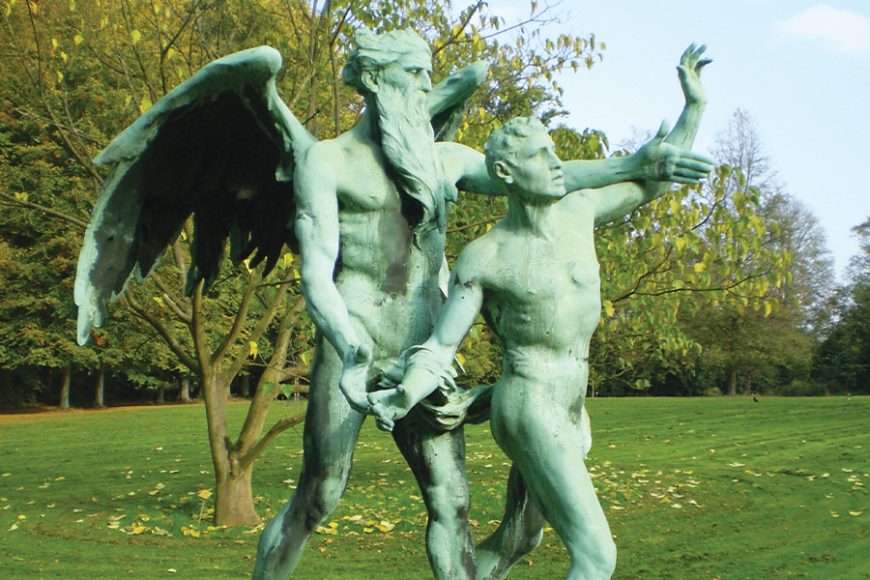It’s the one thing that people say they never have enough of, more so than even money, with which it has an uneasy relationship.
Time may be our greatest preoccupation. We fret over whether something or someone — a plane, a train, Uber, a project, ourselves — will be on time. We take comfort in the notion that it heals all wounds. We speak of a dream vacation as having been “the time of our lives” or an illness as “going through the worst time.”
Yet for all our engagement with time, we little understand it. We worry about the future, even as we fail to plan for it. We ignore or disparage the historical past, which is always with us, ready to instruct, only to obsess about the social past — who dated whom three months ago, who argued about what at Thanksgiving last year — even though that’s over in a New York minute. We record the present, rather than live in it — selfies, anyone? — never realizing that time is like a handful of sand: The harder you squeeze, the more it trickles through the sieve of your fingers.
Particularly in eternally adolescent America, we are always out of sync with time. We spur children to grow up — when did black become, well, the new black for children’s clothing? — and grown-ups to be forever young (the multibillion-dollar anti-aging industry). We laud the latest technology as “time-saving” — never considering the time it takes to learn to use and then babysit technology.
We work hard to earn time off, only to learn that time isn’t necessarily money: If we have the time, we may not have the money. And if we have the money, we may not have the time. We romanticize a period — think of all those time-travel stories — never saying as Charles Dickens does in “A Tale of Two Cities,” “It was the best of times, it was the worst of times.” For in each time, one person’s sunrise is another’s sunset.
And sunset is not something we want to dwell on. We fear “running out of time,” because we fear its close associate, death — overtime in sports even being referred to as “sudden death” while an on-time publication meets its “deadline.” And so time becomes the enemy.
But what if there were a way to think about time that would put us in sync with it? It might help to understand that there are two kinds of time. The first is a construct. It’s ruled by calendars and clocks that date from the Paleolithic period and ancient Egypt respectively. Though based on observable natural phenomena, this kind of time is manmade and can be unmade. Not every U.S. state, for instance, “falls back” for Standard Time (Nov. 3 this year) or “springs forward” for Daylight Savings Time (March 8 next year). Most of Arizona, Hawaii and the unincorporated territories of American Samoa, Guam, the Minor Outlying Islands, the Northern Mariana Islands, Puerto Rico and the U.S. Virgin Islands remain on Standard Time year-round.
Meanwhile, California and Florida are looking to move to Daylight Savings Time permanently.
Asia and Australia also offer a mixed picture, with the European Union generally falling back and springing forward and Africa remaining on Standard Time.
The other kind of time, though, is not a construct but a continuum. Here the past influences the present, which is passing even as you’re living it, with both in turn shaping the future.
Time, then, is a river, and you know the Chinese proverb: “Don’t push the river. It flows by itself.”
What would happen, then, if you eased up on the oar, skipped one train for a later one, spent more time on what you wanted to do — or really had to do — and less on what you didn’t? Would time then contract and expand with your own rhythms?
It may not be possible. The demands of other choices made a long time ago may require that you remain wedded to the clock. But even here, less may prove more. If time is the enemy, then the way to conquer it may be, in the words of the Chinese philosopher Lao Tzu, to “yield and overcome.”
Or as Salvation Army founder William Booth put it: “The greatness of a man’s power is the measure of his surrender.”





